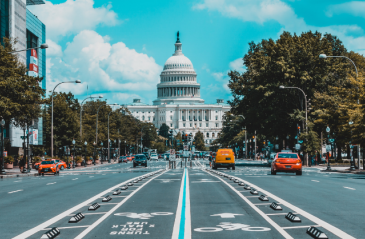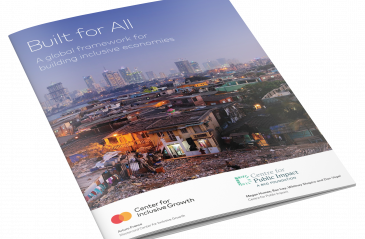
Systemic funding architecture: A proposition to catalyze urban climate finance

Agreeing the Sustainable Development Goals was one thing - implementing them is another
Share articleFailure is endemic in public sector reform - in both the developed and developing world
Share articleIf public service is in crisis almost everywhere, SDGs progress will be slow
Share articleWe put our vision for government into practice through learning partner projects that align with our values and help reimagine government so that it works for everyone.
On 25 September 2015, the UN member states adopted a set of 17 Sustainable Development Goals (SDGs) to end poverty, protect the planet and ensure prosperity for all. Sounds good, right? But now comes the hard part: the implementation.
There are many moving parts to this process. Take politics, for example. Thinking and working in a politically informed way in development is increasingly seen as essential. Yet how to handle that insight remains problematic. Politics often gets a bad press, but it is the key process by which society allocates resources and promotes innovation. The SDGs agenda is hugely ambitious and its successful implementation will depend on transformative public services, and not just on efficient and effective ones.
Intertwined with politics is the "political settlement", by which I mean how power is organised and exercised. It includes not only the formal institutions for political and economic relations but also the informal, often unarticulated, agreements that underpin a political system.
Central to all those unarticulated agreements is, I believe, the pact between a country"s political and administrative leaderships. This pact is the interface that defines the nature of public authority and how it is imposed. For, whether politics is personalised or institutionalised, competitive or not, the grip on power requires some kind of agreement by the civilian and military leaderships to comply with the political leadership.
Another factor is the recognition of the centrality of an effective public service to development outcomes. Almost all of the 17 Goals, 169 proposed Targets and 231 recommended indicators rely, directly or indirectly, on public officials for their implementation. This includes not only the prioritisation of SDG targets and indicators but also their interpretation, given that some targets are expressed in vague, qualitative language rather than being clearly measurable and time-bound.
But if the public service is ineffective, and is either unable or unwilling to make the extra effort required, then it needs to be reformed. And this introduces another theme and another question why do so many public service reforms fail?
This has been a focus of the UNDP's Global Centre for Public Service Excellence's work on the political/administrative leadership interface and, in particular, its focus on the political/administrative leadership pacts, or PALPs for short. These tacit agreements or unwritten understandings between the political and administrative leaderships of a country are critical to its government, and never more so than in delivering the SDGs. Yet they are poorly understood, and these informal pacts often go a long way towards explaining why civil service reform should only ever be entered into with great care.
Another element is the broader character of the political settlement, the formal and informal agreed ‘rules of the game", which is an important determinant of any PALP in any country. For example, Lee Kuan Yew reformed the political settlement with the public service through the PALP in Singapore soon after coming to power in 1959, when he cut public sector salaries to make the post-independence finances sustainable. He then reversed this reform twenty years later, making the country"s top civil servants very well paid.
So it may be that similar PALPs will enable the SDGs to be successful in other contexts, by affecting the nature of the work of public officials in key central ministries as well as the delivery of public services.
We also need to remember that failure is endemic in public sector reform. This applies in both the developed and the developing world. For example, one authoritative study of public sector reform in the UK over the last thirty or forty years summed it up as "erratic, episodic, incoherent and wasteful". In developing countries, these problems are often more serious because the need for an effective public sector and, therefore, for public service reform is that much greater.
Why is failure so common? I think it"s no surprise that at the same time as public sector morale and motivation has been on the wane, so has the public"s trust in government. Impartial and effective public administration builds trust between state and citizenry, and stimulates markets. At its core, the problem lies not in unsuccessful public sector reform as such, but in daily politics and the deep, underlying political settlement that may be deliberately or accidentally weakening public service. Nevertheless, a demoralised, disillusioned and disempowered public service is not going to deliver the SDGs.
This challenge has to be tackled because, if public service is in crisis almost everywhere, we can be sure that progress on the SDGs will be slow. If public servants have little trust in their own leadership, then job commitment, professional satisfaction and the ethical climate of the public service will decline, putting fairness and impartiality at risk. In the long term, this threatens citizens" trust and state legitimacy but, in the short term, it already appears to be resulting in greater levels of misconduct, disengagement and lack of commitment.
This crisis within public administrations is, I believe, on such a scale in so many countries that it must be acknowledged as a major obstacle to the achievement of development outcomes, particularly the SDGs. The task facing policymakers of every stripe is to meet these challenges head-on. They need to work with the grain of political settlements to recast PALPs everywhere.
There's no time to wait.











